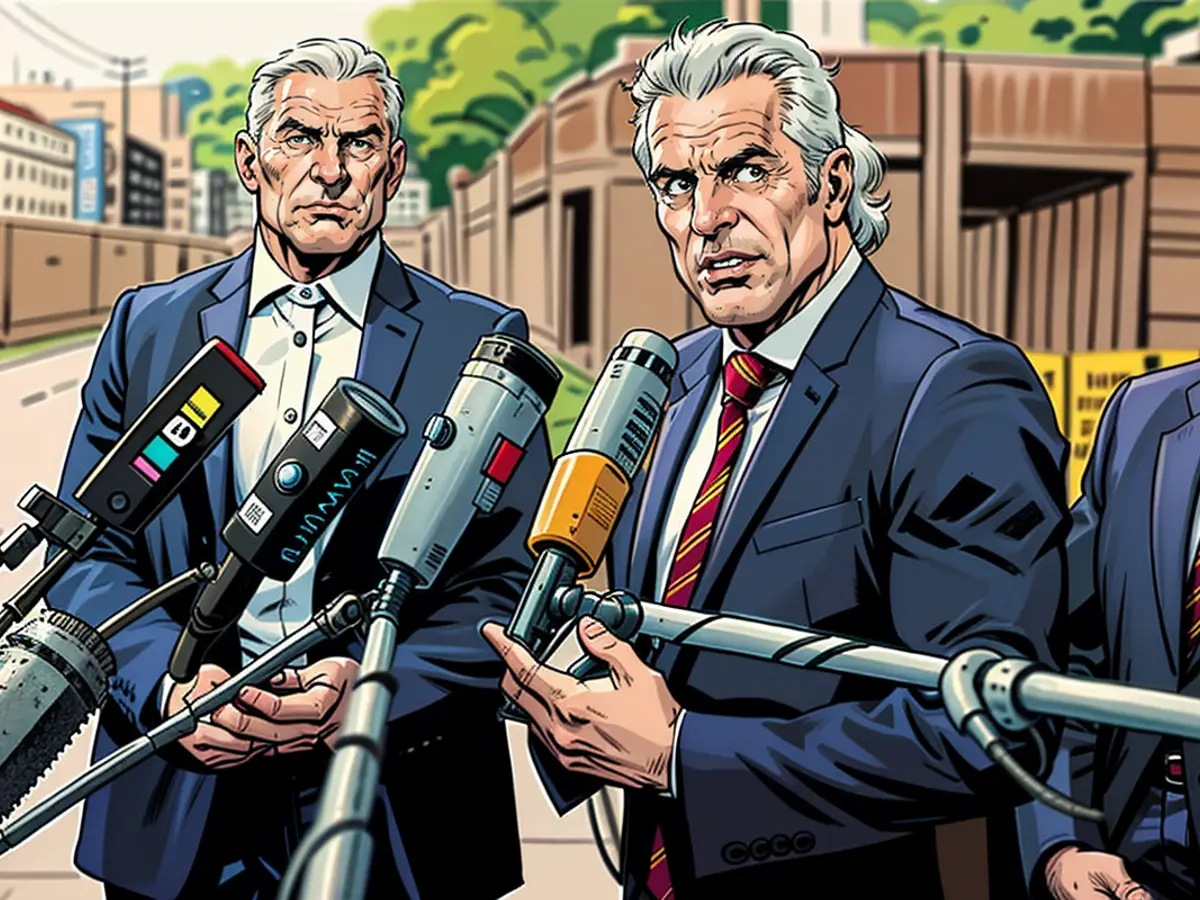Experienced a split, encountered a separation, or encountered failure?
Union Chief Merz Declares Migration Discussions with Federal Government as Unsuccessful - "That was always the plan," states Chancellor Scholz. Is that accurate? One of the CDU negotiators avoids answering the question on Lanz.
Tension arose on Tuesday afternoon, leading to the Union leaving the joint migration summit with the coalition government. Union leader Friedrich Merz spoke about it at a press conference on Tuesday. The situation looks dramatically different by Wednesday morning. Federal Chancellor Olaf Scholz extends an invitation for further migration discussions with the Union. The parliamentary group leader of the Union, Thorsten Frei, also expresses his interest in continuing the talks. However, during the talk show Markus Lanz on Wednesday evening, Frei calls for concessions from the coalition government.
Former Green politician Jürgen Trittin notes, during the show, that the Union's actions are reminiscent of a popular quote by the former SPD politician Herbert Wehner: "Who leaves must eventually return." Markus Lanz skillfully manages to persuade Thorsten Frei to agree to return eventually, after much effort and patience. At first, he needs to explain why the Union left in the first place. The explanation proves challenging for the CDU politician.
It takes Frei some time to answer Markus Lanz's elementary question: "Were we planning to return at some point?"
Frei could have answered this question with a simple yes or no. However, he opts for a lengthy speech instead, which Lanz attempts to shorten by repeatedly asking his question. Frei mentions numerous reasons, such as the majority of Germans supporting a tougher migration policy, the Union supporting the coalition in the parliament, and the migration summit's objective being to produce significant results. He details their meeting a week prior and the subsequent adjournment. After some time, Frei finally mirrors Lanz's question: "Did we get up like everyone else? This meeting was scheduled for 3 to 5 pm, and around 5 pm, we realized that we had no common ground that would serve as a stepping stone in this format. We spoke to each other for two hours in an attempt to find commonalities, but the traffic light coalition's offer failed to match what we discussed a week ago."
Union Persists in Demanding Extreme Measures
Let me remind you: The Union aims to prevent migrants from third countries from entering Austria, even if they apply for asylum. The government recognizes potential legal issues, with Interior Minister Faeser suggesting that the federal police should examine whether another EU country is responsible for the refugee's protection request at the border in the future. This might approach the Union's demands, although the Union continues to insist on its most extreme measures. The Union did not abandon negotiations, confirms Frei on Lanz. "We reached an agreement, and we decided to take a break."
Who is this "we", Lanz inquires. After some time, Frei clarifies: the Union participants. So, a separation, as Merz announced on Tuesday? No, Frei clarifies, it's just the meeting has ended, and they have no agreement, so they left. However, everyone left ultimately.
What Lanz wants to know is who made the decision and if there was a plan. No, Frei replies, there was no plan, but before the summit, they discussed the conditions under which they would withdraw.
Lanz concludes that there seemed to be a strategy, while Frei states that there wasn't any. Instead, they found out about a position paper that had been distributed by the Interior Minister to journalists, detailing their proposals and the Union's objections.
"That's just a normal part of politics," Lanz adds.
Frei replies: "That's not an acceptable basis for compromise. But we wouldn't let that hinder us from engaging in conversation. That's why we attended the meeting even if the conditions weren't met."
He continues: "We ended the talks because nothing was achieved." So, they were broken off after all?
"The perception might be different," Lanz observes, a bit surprised.
"We will always remain open to dialogue"
The debate may be over, but then Thorsten Frei reveals a crucial detail: "As democrats, we will always be open to dialogue. And there's nothing definitive yet. However, we need a new foundation: We need to find common ground to produce shared results."
So, there will be more migration discussions after all? Lanz wants to confirm and asks once more: "These talks haven't been called off; they are just on pause?"
And Frei responds with affirmation: "Yes, from our perspective. We are always open to dialogue. But we need a foundation for it. We will not return under these conditions because we will not make any progress. Both sides need to make progress towards each other to achieve fundamental improvements."
The Union's next steps are unclear at the moment. We'll have to wait for the next talk show to find out.
The Union has expressed its interest in continuing migration discussions with the federal government, as stated by Federal Chancellor Olaf Scholz's invitation and Union parliamentary group leader Thorsten Frei's affirmation. Frei also mentioned that as democrats, the Union will always remain open to dialogue, indicating potential future migration discussions.
Additionally, the Union has emphasized its stance on preventing migrants from third countries from entering Austria, even if they apply for asylum, and has demanded extreme measures. Despite the complications during the previous summit, the Union did not abandon negotiations, according to Frei, indicating a willingness to engage in further discussions.








